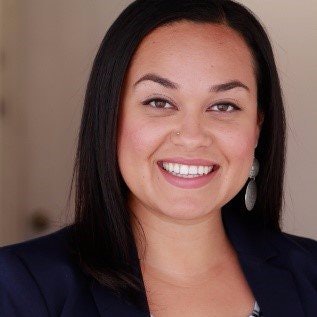Once while traveling to a conference, I used my credit card to check-in to access my frequent flyer benefits. My salutation, Dr. Nichole M. Garcia, prompted the sales associate to ask me if I could provide medical advice for something she was experiencing. As I began to explain that I was not a medical doctor, I was met with, “But you’re not a real doctor, you’re a teacher.”
While I was home for the holidays, my brother, said, “I know you are not a medical doctor, but what the hell do you do as a ‘doctor?’” This reminded me of a piece by my dear friend and colleague, Andrew Martinez. In “Responding to Misconceptions of Being a Graduate Student,” he states: “When I would hear people in my family try to explain my work or career to others, I heard – ‘he’s like a principal at a college,’ and ‘he’s a guidance counselor for college students.’ I had such a hard time explaining what I do because I was also figuring out the field as I entered it.”
I agree. As people of color, we often are figuring it out as we go. Like Martinez, explaining the misconceptions of being a graduate student is significantly important and it does not stop as a student. At some point, I am sure most academics have found themselves in casual conversations in airports as we travel to conferences, conduct research, work at coffee shops or run errands for life purposes, having to respond to what it is we “actually” do. It happens to all of us Ph.D.’s, who unlike “real” doctors are not medical doctors.
As an undergraduate I was guilty of qualifying Ph.D.’s as not “real doctors.” That saying, “you don’t know, what you don’t know,” applied profoundly. I had no idea what a Ph.D. was. I was like many people. To be successful meant I needed to become a medical doctor or a lawyer. I am also aware of the constant debates regarding who qualifies to be called a “Doctor” based on their discipline, degree type and profession. We could debate all day about this. However, let us all remember that these debates are steeped in White supremacy, privilege and power. This we all need to be cognizant of and find ways to decolonize academia.
 Dr. Nichole Margarita Garcia
Dr. Nichole Margarita GarciaOne way I was taught to decolonize academia was through my Ph.D. adviser, Dr. Daniel G. Solórzano. If you know him or met him, he simply goes by “Danny.” As one of the humblest academics I know, he always asks his students, “what is the story you want to tell?” and “what is the history behind it?” This allows for humility to drive the work you do as you are in constant reflection of your own positionality. The story I want to tell is one that is general, yet informative. Even though I have a Ph.D. in education, I set out to find more information regarding classifications and degree types. This is what I found of significance:
What is a Ph.D.?
The U.S. Department of Education’s, National Center for Educational Statistics (NCES) classifies the doctorate as “the highest award a student can earn for graduate study. The doctor’s degree classification includes such degrees as Doctor of Education, Doctor of Juridical Science, Doctor of Public Health and the Doctor of Philosophy degree in any field.” NCES has three main sub-classifications they follow for doctorate degrees: research/scholarship, professional practice degrees and other degrees.
A Ph.D. is a Doctor of Philosophy, an M.D. is a Doctor of Medicine, and a J.D. is a Doctor of Jurisprudence. How these classifications operate differ based on country. For the United States, a Doctor of Philosophy is used to describe an individual who has conducted original research to demonstrate new knowledge in any field of graduate study.
A Doctor of Medicine and Doctor of Jurisprudence are first professional degrees in which individuals will practice their respective profession and have completed the necessary certification or licensure. Yes, you can have both! There are Doctorates of Medicine and Philosophy (M.D./Ph.D.) and Doctorates of Jurisprudence and Juridical Science (J.D./S.J.D.).
Why should we care?
Earning any higher education degree in the U.S. is not easy. Especially, if you have earned a doctorate. It takes time, money and a toll on your physical and mental well-being. While we seek validation, appreciation and respect based on these accomplishments, this will not always happen.
Why? According to the U.S. Census less than 2 percent of the whole U.S. population hold a Ph.D. or M.D. That small percentage is directly linked to such comments as “but you’re not a real doctor.” Most of the general public are unaware of degree types and classifications. Yes, you will most likely have to explain it.
View it as a learning opportunity. The more we can share our knowledge, the more we educate the general public. Banksy said it best, “If you get tired, learn to rest, not to quit!” Apply that to learning opportunities.
How do you explain the Ph.D. to your family?
I think it is important regardless of what “doctorate” you have to return to the words of Danny, “What is the story you want to tell?” Or, how do you want to share the story and what can you learn from telling it? At every stage of my graduate degree I shared it will my family and still do. Danny is a very family friendly and welcoming academic.
My parents were at my dissertation defense and as I was being vigorously questioned by my committee, my father abruptly interrupted. He wanted to protect me from the difficult questions being asked. Fatherly instinct. Instead of Danny shutting this down, he allowed my father to make his stance. We all still laugh about it today.
For me, that was a sharing of a story, as chapter 1 of my dissertation was based on my father’s educational trajectory. I learned that day, that I was a bridge to bringing unheard voices into spaces where they otherwise would not be present. It is not about explaining the Ph.D., it is about sharing it for others to experience.
You have to ask yourself: what is the story you want to tell and how will you share it?
Dr. Nichole Margarita Garcia is an assistant professor of higher education at Rutgers University, New Brunswick. You can follow her on Twitter @DrNicholeGarcia
















